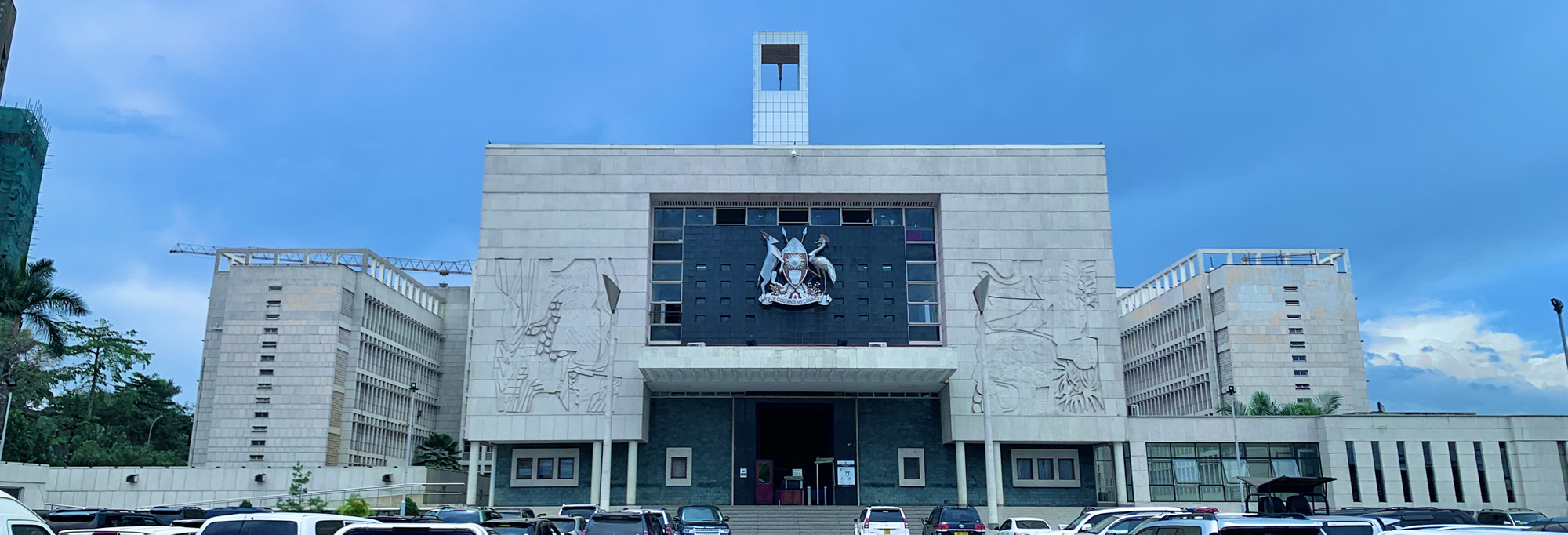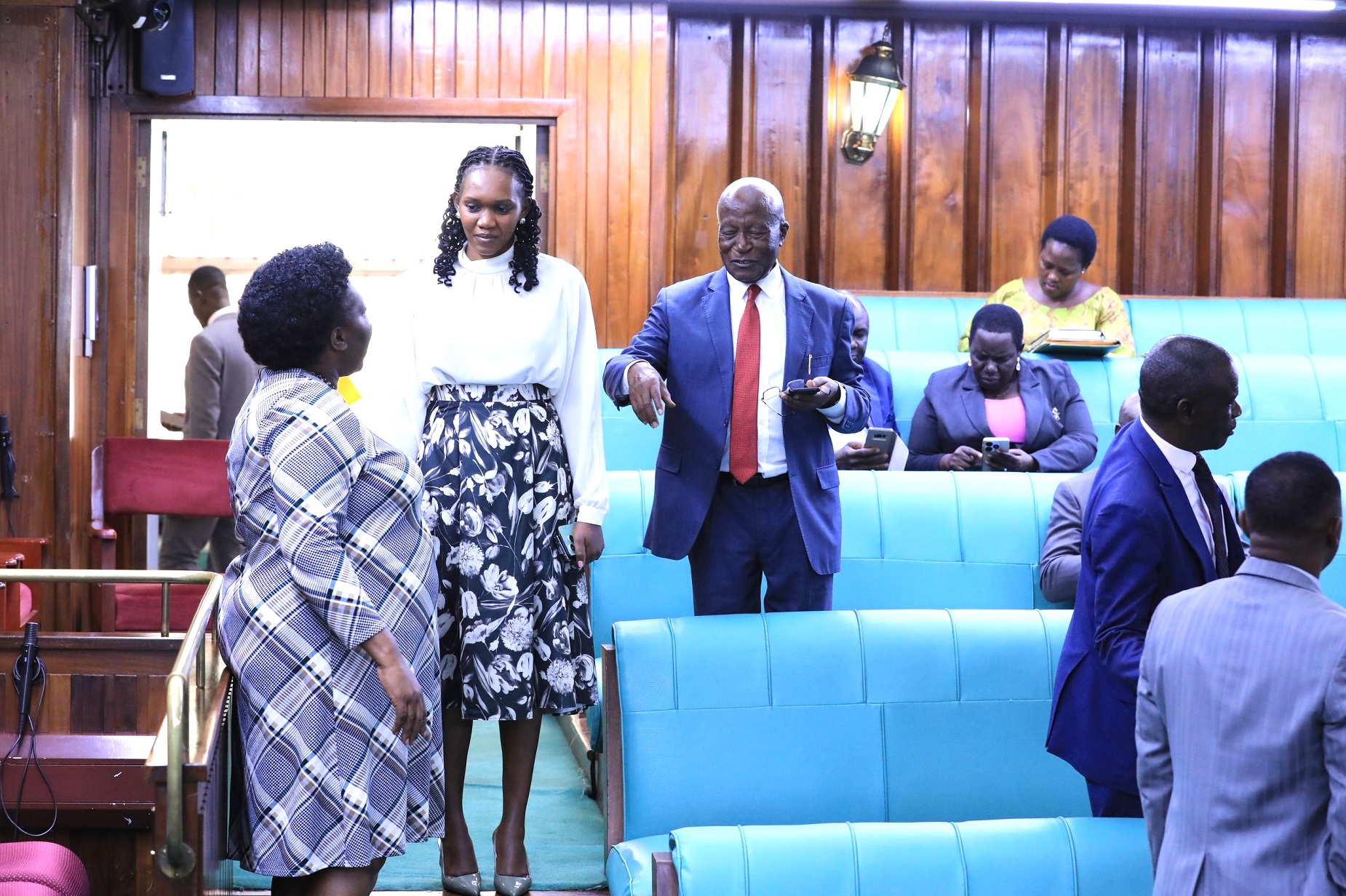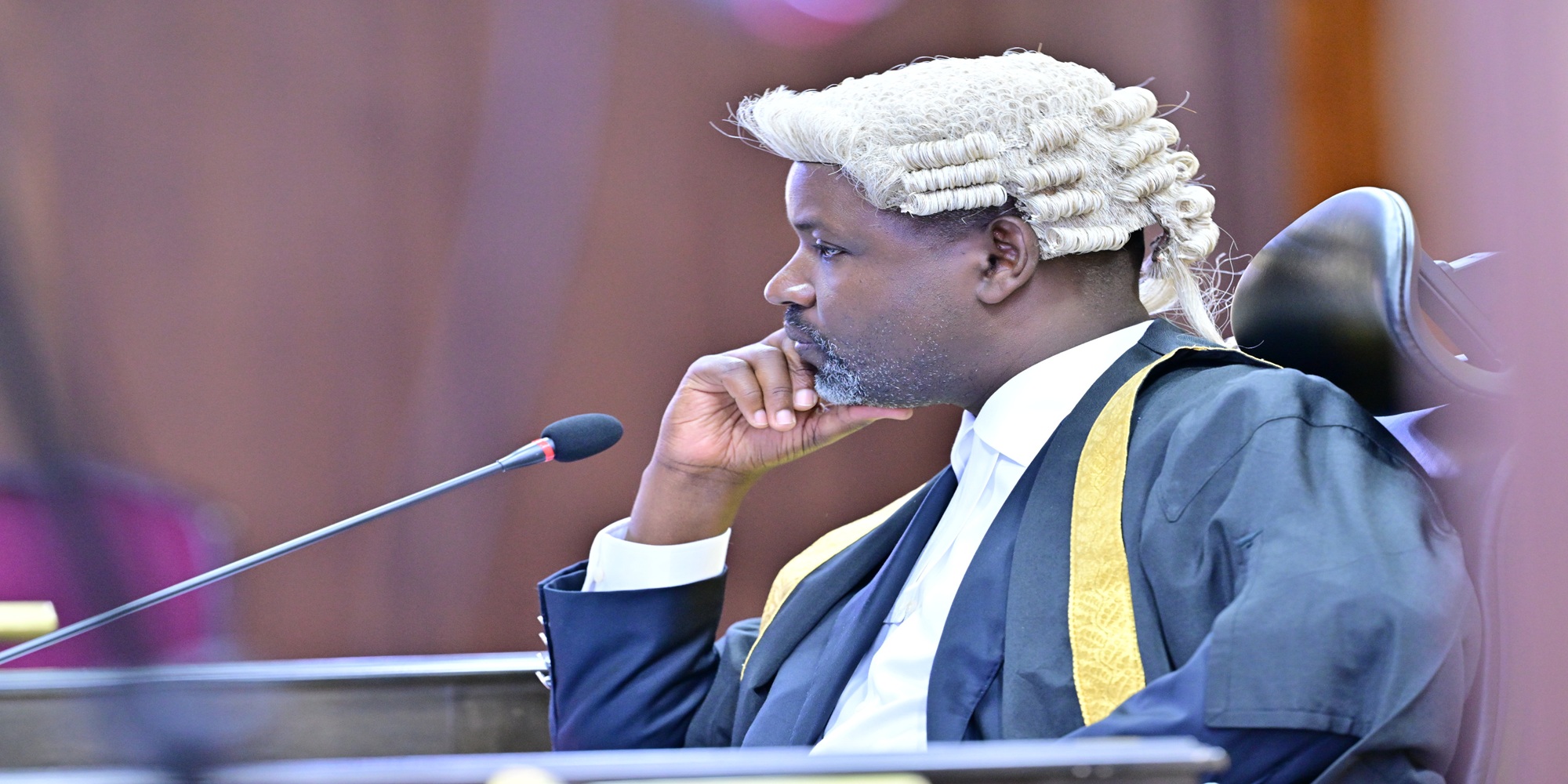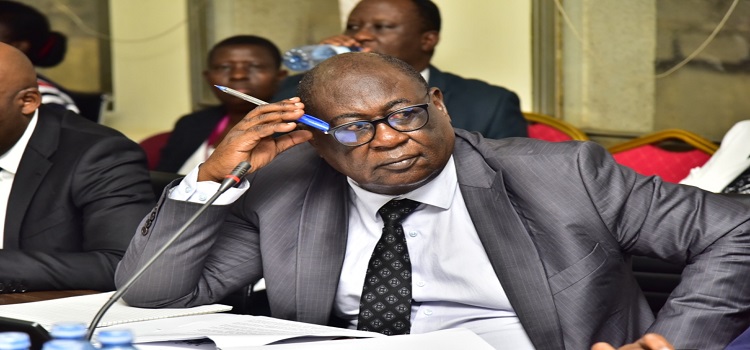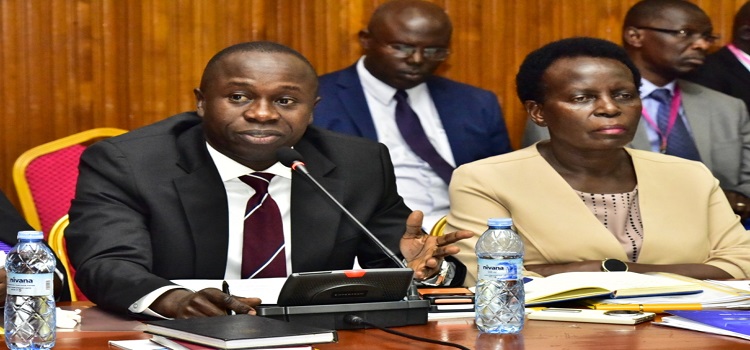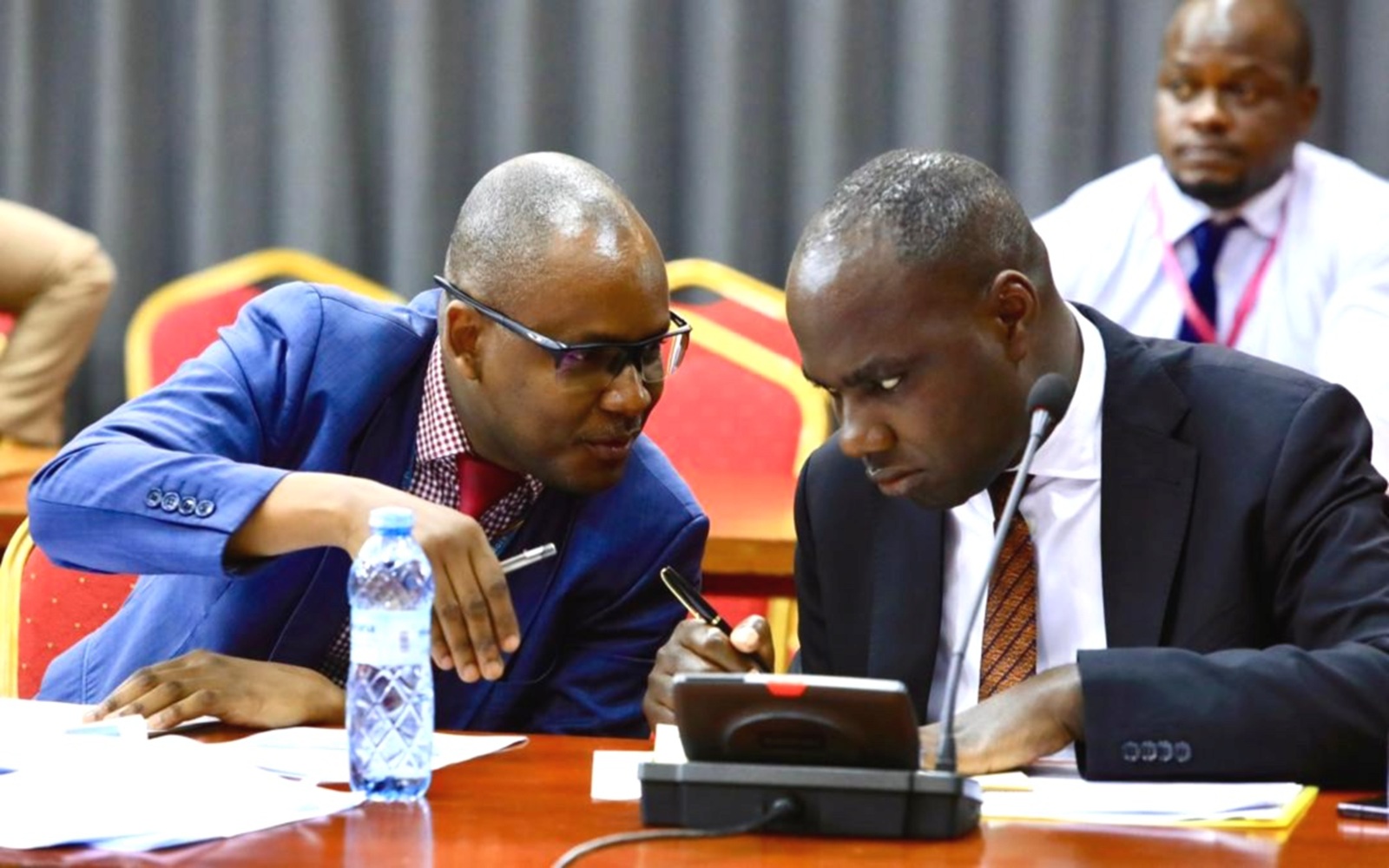The Committee on National Economy has called on government to review its proposed €183.3 million loan from Standard Chartered Bank, UK, and Shs120.4 billion from the domestic market through a six-month Treasury Bill for the Strategic Towns Water Supply and Sanitation Project - Phase II.
The proposal was debated during a sitting chaired by Deputy Speaker Thomas Tayebwa on Tuesday, 16 September 2025, following a motion by the Minister of State for Finance, Planning and Economic Development (General Duties), Hon. Henry Musasizi.
Musasizi said the project aims to expand access to clean water and sanitation for rapidly growing urban populations. “The project will support Government of Uganda’s efforts to achieve sustainable provision of safe water and hygienic sanitation for the urban population by 2030,” he said.
He noted the scheme would directly benefit at least 740,000 people by 2030 and one million by 2050, while also serving industries such as the cassava processing plant in Nakasongola District and the proposed industrial park in Kakooge.
“It will contribute to improved health and productivity, provide employment during construction, and empower women and youths through skills development,” he added.
The project covers four clusters: Nakasongola District, Kasambira in Kamuli District, Bugadde in Mayuge District, Idudi-Buseesa in Bugweri District, and Alebtong District spanning 51 towns in 115 parishes.
It has three components: urban water supply infrastructure, urban sanitation facilities, and project management. Planned designs include water intake and treatment plants, faecal sludge facilities, and public toilets to address growing waste management challenges.
The counterpart funds will cover recurrent costs, land acquisition, coordination, and monitoring, with allocations starting in FY 2025/26.
Presenting the committee’s chairperson, Hon. John Bosco Ikojo, acknowledged the project’s potential but raised concerns over its financing.
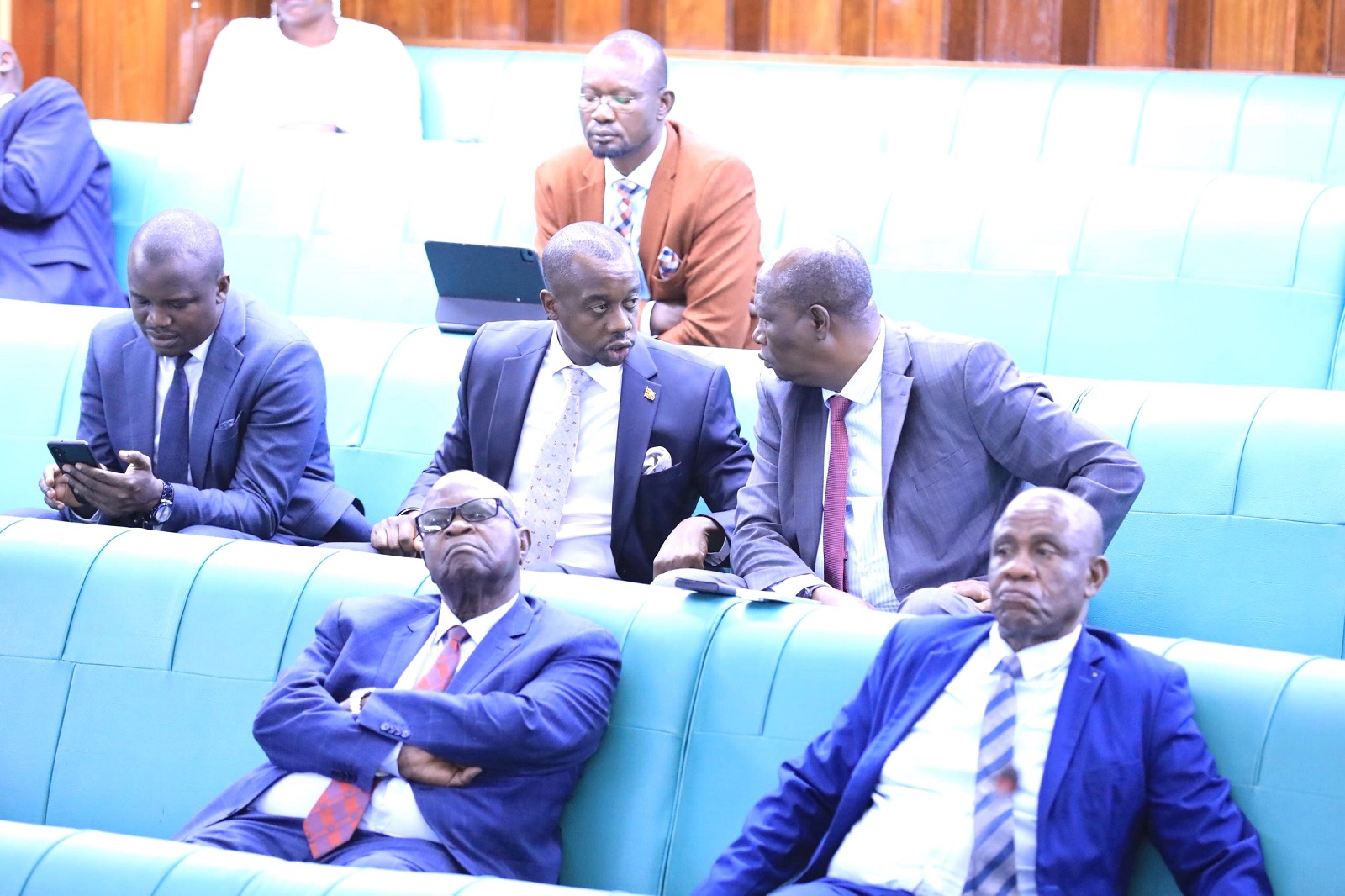
“The loan is highly commercial, with a grant element of only seven percent, far below the concessionally threshold of 35 percent recommended by the IMF and World Bank,” he said.
The committee noted that repayment of €183.3 million would reach €311.5 million over 14 years, highlighting a heavy debt burden.
The committee also questioned domestic borrowing at a 12.1 percent rate and the €15.7 million insurance premium to SINOSURE (China Export & Credit Insurance Corporation), representing nine percent of the loan despite low project risks.
Ikojo urged government to renegotiate terms to align with more favourable arrangements, as achieved in previous projects such as Kabalega Airport.
The committee called for lessons to be drawn from Phase I, highlighting procurement delays, compensation issues, untimely release of counterpart funds, and over-reliance on costly consultants, which alone will amount to over €8 million in this project. It recommended strengthening in-house technical capacity, careful review of total project costs, and focusing on fewer areas to improve management and reduce cost overruns.
Presenting the minority report, Hon. Charles Tebandeke (NUP, Bbale County) said the loan was so high and government should revert to the previous creditor.
“The minister presents a list of financing options considered when selecting Standard Chartered Bank. The minister should clarify the double SINOCURE PREMIUM payments of 7 percent on principle and 7 percent on interest,” he said.
The minority report signed Hon. Hassan Kirumira (Katikamu County South) and Tebandeke further opposed the loan and urged Parliament to reject or defer approval until more favourable terms are secured, emphasising fiscal prudence in a high-debt environment.
Responding, Musasizi said alternative financing was limited as the contractor had already been determined under engineering, procurement, construction, and financing arrangements.
“We did not go to ADB, which financed Phase I, because yearly allocations have all been used by the SGR,” he explained. He noted that concessional financing windows have declined, making commercial borrowing necessary, with fully commercial loans attracting 7 percent compared to 4.5 percent concessional rates.
Several MPs voiced concern over costs and project execution.
Hon. Charles Ayume (NRM, Koboko Municipality) said €8 million for consultancy was high and questioned the cost of pit latrines.
Aringa North County MP, Hon. Godfrey Onzima, urged government to complete ongoing projects before embarking on new ones.
Hon. Jonathan Odur (UPC, Erute County South) argued that approving the loan without addressing the committee’s concerns could lead to a resolution misaligned with Parliament’s intent, urging a review before approval.
“The committee said renegotiate terms of the loan,” Odur said.
Hon. Milton Muwuma (NRM, Kigulu County South) expressed confusion over the committee’s report, which raised concerns but ultimately recommended approval.
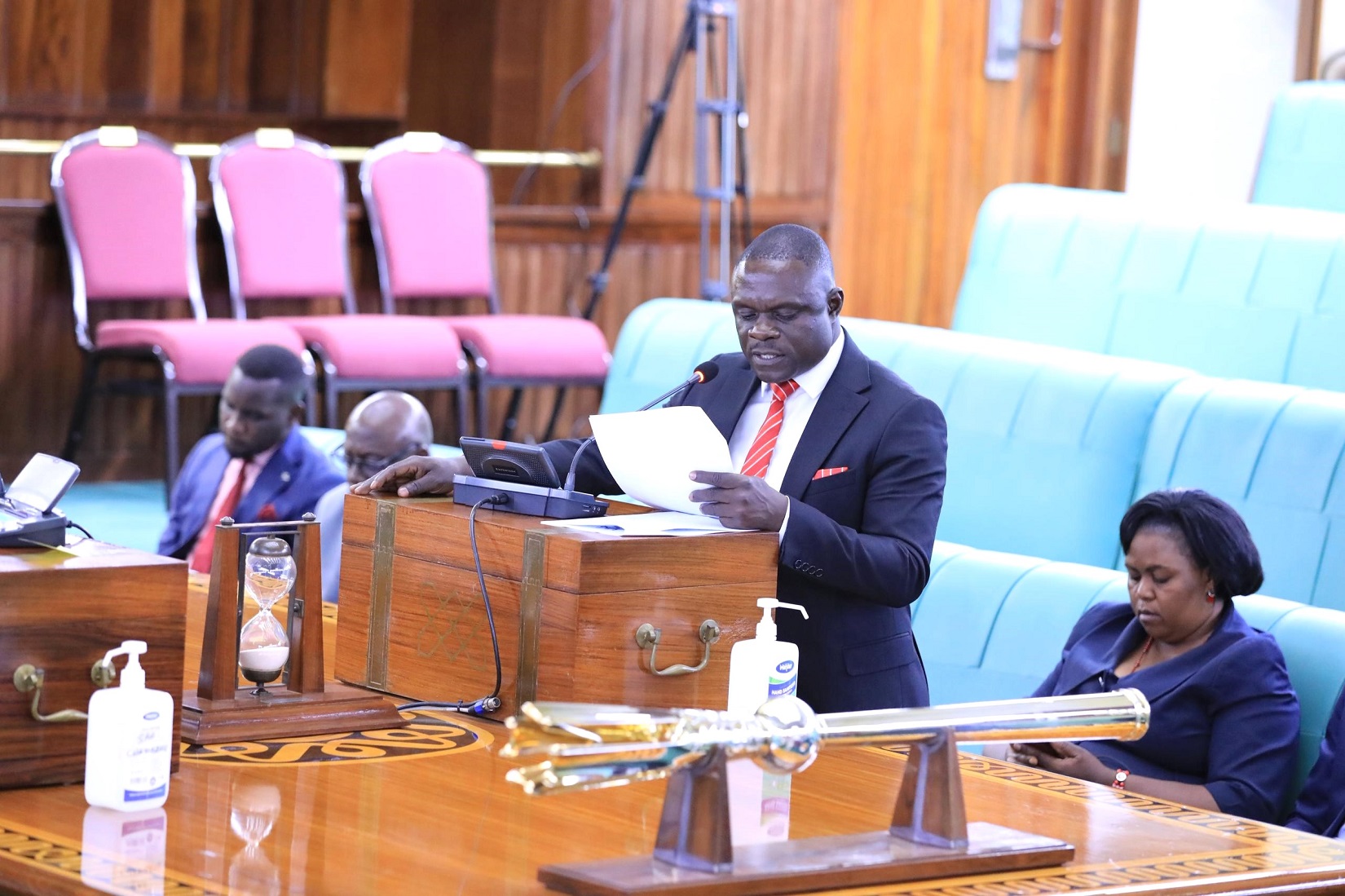
The Leader of Opposition, Hon. Joel Ssenyonyi, highlighted Uganda’s growing debt burden, referencing Shs 16.4 trillion in undisbursed loans and Shs70 billion in commitment fees paid as of December 2024, per the Auditor General’s report.
He questioned the shift from the African Development Bank, the previous creditor for Phase I, and demanded clarity on alternative financing options.
Ssenyonyi also raised procedural issues, noting that neither the majority nor minority reports met the required one-third committee member signatures (19 out of 56), with the majority report having 16 and the minority only two.
Deputy Speaker Thomas Tayebwa clarified that 19 members had signed the majority report, but Ssenyonyi contested the discrepancy in the distributed copies. He further cited Rule 25, which requires a quorum of 177 MPs (one-third of voting members) to decide on such matters.
The Deputy Speaker deferred the matter, noting that the number of MPs present was inadequate for a decision, leaving the loan’s approval in limbo.
